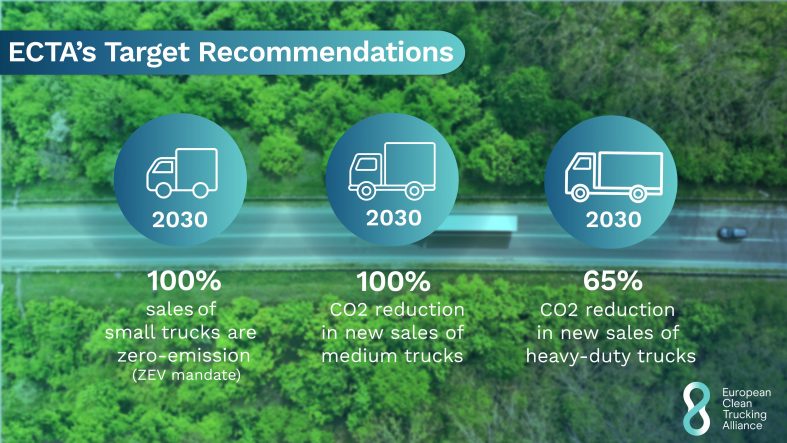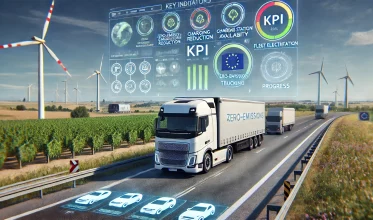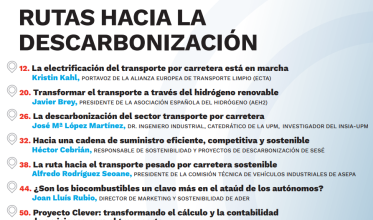Ambitious targets to boost the supply of zero emission trucks and drive the transition of the logistics sector
Almost a quarter of the EU’s road emission is caused by trucks in 2020, making up a total of 6% of the EU’s emissions. In order to reach the EU’s climate goals, the overwhelming majority of the emissions reduction will come from the sales of zero emission vehicles.
However, the sales of zero emission vehicles have stalled at a very low level because very few zero emission vehicle alternatives are currently available, especially for long-haul operations. The potential of zero emission trucks and buses to decarbonise the road freight sector is huge and offers economic and technological opportunities for the road freight transport sector.
The ECTA sees the regulation on CO2 standards for HDVs as the most important tool to drive the transformation of the sector towards zero emission trucks. The ambition of the revision will determine whether and how Europe will advance the global race to decarbonise trucking. Importantly for actors in the freight and logistics sector, it will also dictate the level of supply of zero emission vehicles, meaning the extent to which transport companies are able to purchase these vehicles. The higher the ambition of the target, the more zero emission vehicles are produced and the more affordable they become.
The Alliance calls on the European Commission to:
- Strengthening the 2030 CO2 reduction target for medium lorries (100%) and heavy lorries (65%) and, the 2040 CO2 reduction target for vocational vehicles (100%)
-
ZEV targets in 2027, 2030 and 2035 for small lorries that are currently not in the scope of the regulation
-
Increase the ambition of the ZLEV mechanism to 15% from 2027 onward and revising it to ensure it incentivises only future-proof technologies
-
Extend of the scope of the regulation to cover all vehicle groups





